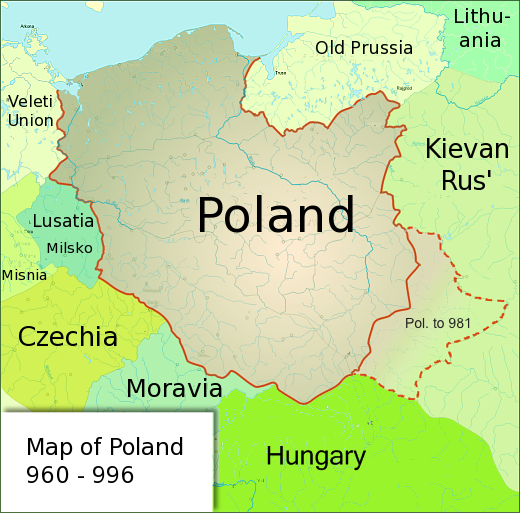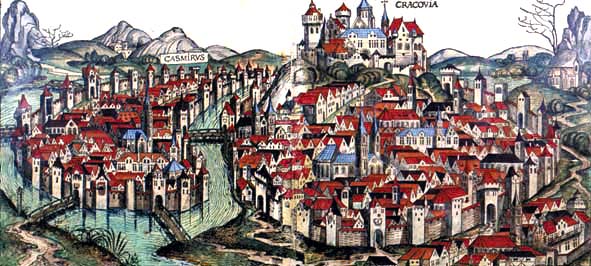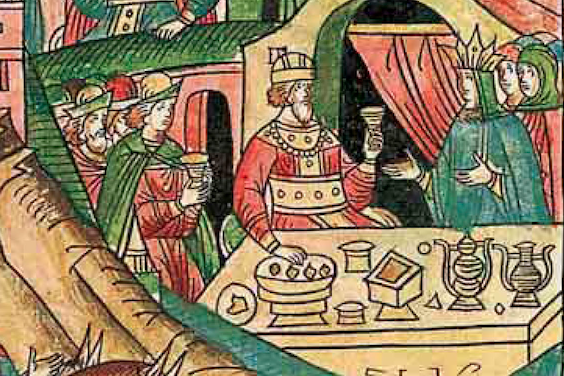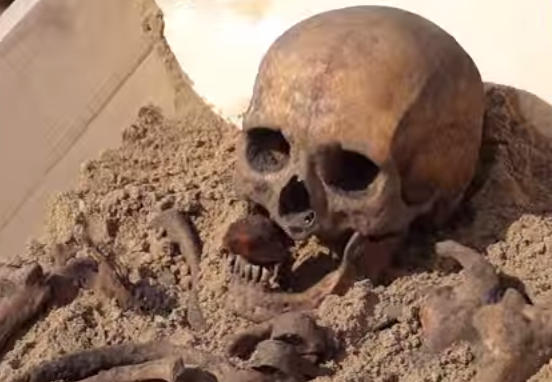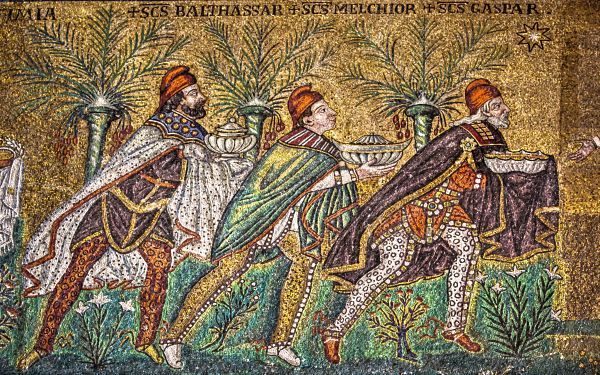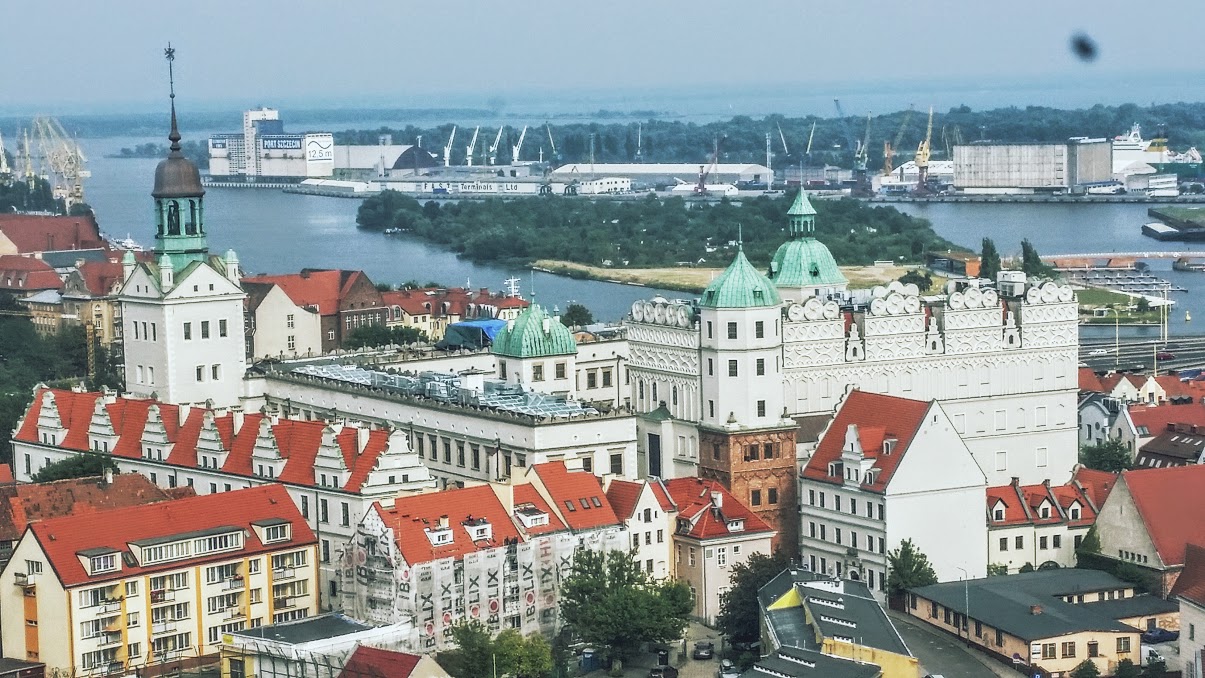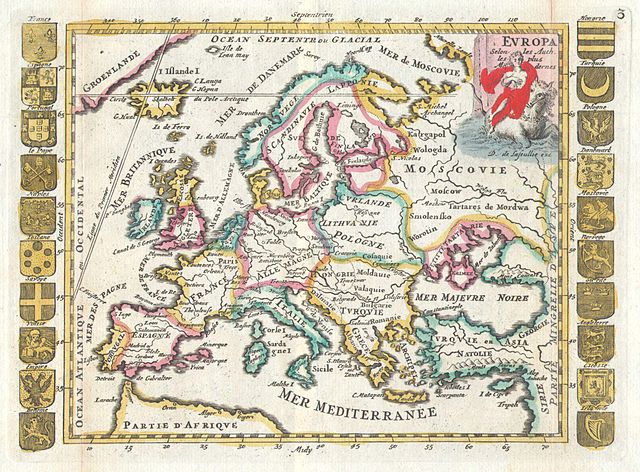Intercultural relations of the inhabitants of Polish territory in the 9th and 10th centuries
This chapter discusses the influence that neighbours had on the population of Poland in the period in question, and vice-versa. The aim is to demonstrate the diverse cultural models that were reaching Polish lands in the 9th and 10th centuries.
Four Warriors Buried in 11th-century Poland came from Scandinavia, researchers find
The four warriors buried with rich grave offerings in a cemetery in the northern Polish town of Ciepłe came from Scandinavia, expert analyses show. This is proof that people of foreign origin were members of the Piast state elites, researchers suggest.
Geneticists to examine DNA of the first Polish Dynasty
Geneticists have taken DNA samples from the remains of over 30 members of the Piast dynasty to determine their ancestry.
‘Viking’ Ring discovered in Poland turns out to be unique Christian artefact
A medieval ring from the late 9th to mid 10th century, discovered in central Poland, has been been revealed to be one of the earliest Christian artefacts found in that country.
New Research into the Battle of Grunwald/Tannenberg/Žalgiris
The “anniversary Grunwald literature” remains, like the older historiography, for instance the texts concentrated around the 550th anniversary of the battle, culturally “entangled” – because this is an inseparable and inalienable phenomenon of historical – or broader – humanistic research.
Black Death did not reach Poland, according to peat bog evidence
Researchers confirmed that the Black Death epidemic in the mid-14th century did not reach Poland; agricultural production remained at a stable level during that time.
Warrior’s tomb dating back to the 10th century discovered in Poland
The remains of a warrior buried at the end of the 10th century in an earthen mausoleum has been located in the village Bodzia in central Poland.
Laundry Ladies in Medieval Poland
Usually considered to be “women’s work”, this paper takes a close look at how laundry was done in medieval Poland, calling into question common historical stereotypes.
How the borders of Poland changed in the Middle Ages
Here are four videos that track the borders of Poland from the Early Middle Ages to the present day.
Crafts in Medieval Malbork. The state of research, and prospects for further study
The main idea of this article is to present the present state and the future of research on crafts in Medieval Malbork. As the capital city of the Teutonic Order’s state, Malbork is very interesting because of the castle in the town.
The remains of a victim of the Lithuanian invasion of 1354 discovered in the “Pompeii of Warmia”
Archaeologists conducting excavations near the Polish village Barczewko have discovered the skeleton of a man killed in 1354 during the Lithuanian invasion. This place is called the ‘Pompeii of Warmia’ because the ruins of the city destroyed during the invasion are preserved intact.
Survival at the frontier of Holy War: political expansion, crusading, commerce and the medieval colonizing settlement at Biała Gora, North Poland
In the southern Baltic, episodes of colonisation were accompanied by processes of military conquest, political subjugation and religious conversion.
Krakow, the Old Town – A Continental Venice
Surviving the destructions of the war, the old town of Krakow is a lesson of architecture and urbanism through the multitude of architectural styles, coherence and urban continuity.
Queen Jadwiga in history and legend: A contribution to the study of the XIV-XV century history of Poland
In spite of its biographic character, this thesis dwells on the various events in the life of the Queen, illustrating essentials of her personality, as well as the posthumous fame which so vividly remained in the tradition, and the present attempts to beatify the Queen.
History of Poland During the Middle Ages
The roots of the first Polish dynasty – the Piasts (from the 9th century to 1370) – came from Major Poland.
Vampire Burials in Medieval Poland: An Overview of Past Controversies and Recent Reevaluations
Recently, the sensationalist interpretations of deviant burials have also permeated into (inter)national media, leading the general public to misinformation about Poland’s past and the mentalities of its medieval societies.
Discovering a Lost Medieval Town in Poland
The 15th century city of Nieszawa, known by two names Nowa Nieszawa (New Nieszawa) or Dybów was a prosperous urban centre on the border of the Polish Kingdom and the Teutonic Order.
Epiphany: Three Kings Day
A look at the history behind Epiphany and Twelfth Night.
Czechs and Poles in the Middle Ages: Rivalry, Cooperation and Alliances
The article contains a description of the development of Czech-Polish relations in the Middle Ages.
Szczecin: Castle of the Pomeranian Dukes
My visit to Berlin included a quick stop across the border to Poland, to visit Szczecin and the Castle of the Pomeranian Dukes.
The Thirteenth Century International System and the Origins of the Angevin-Piast Alliance
The central question of this study is what inspired Charles I and Władysław Łokietek to establish a dynastic marriage in 1320 and in what context it happened.
The Remembrance of the Deceased in the Traditional Polish Culture of the Middle Ages
In the Middle Ages, Polish Christian holidays remained consistent, except for minor temporary deviations. They included the basic structure of pre-Christian rituals. Yet, traces of the old Slavic ritual calendar can be clearly identified in the Polish and Czech sources from the fourteenth- and fifteenth-centuries.
Christianisation of the Piast Monarchy in the 10th and 11th Centuries
Which facts testify to the beginning of the Christianisation process of a given country and which ones indicate its conclusion?
The Sumptuous Use of Food at Castle Marienburg (Malbork) at the Start of the Fifteenth Century
The prestige role of luxury food consumption was particularly visible during meetings of an international character: Teutonic-Lithuanian, Teutonic-Polish or Teutonic-Polish-Lithuanian, to which the grand master would come accompanied by the highest Order’s officials.
Ostsiedlung or Transition of German Law? Legal Perspective on Settlement According to German Law in Medieval Poland
Paper given at Twenty-First Annual Forum of Young Legal Historians – 6th Berg Institute International Conference
